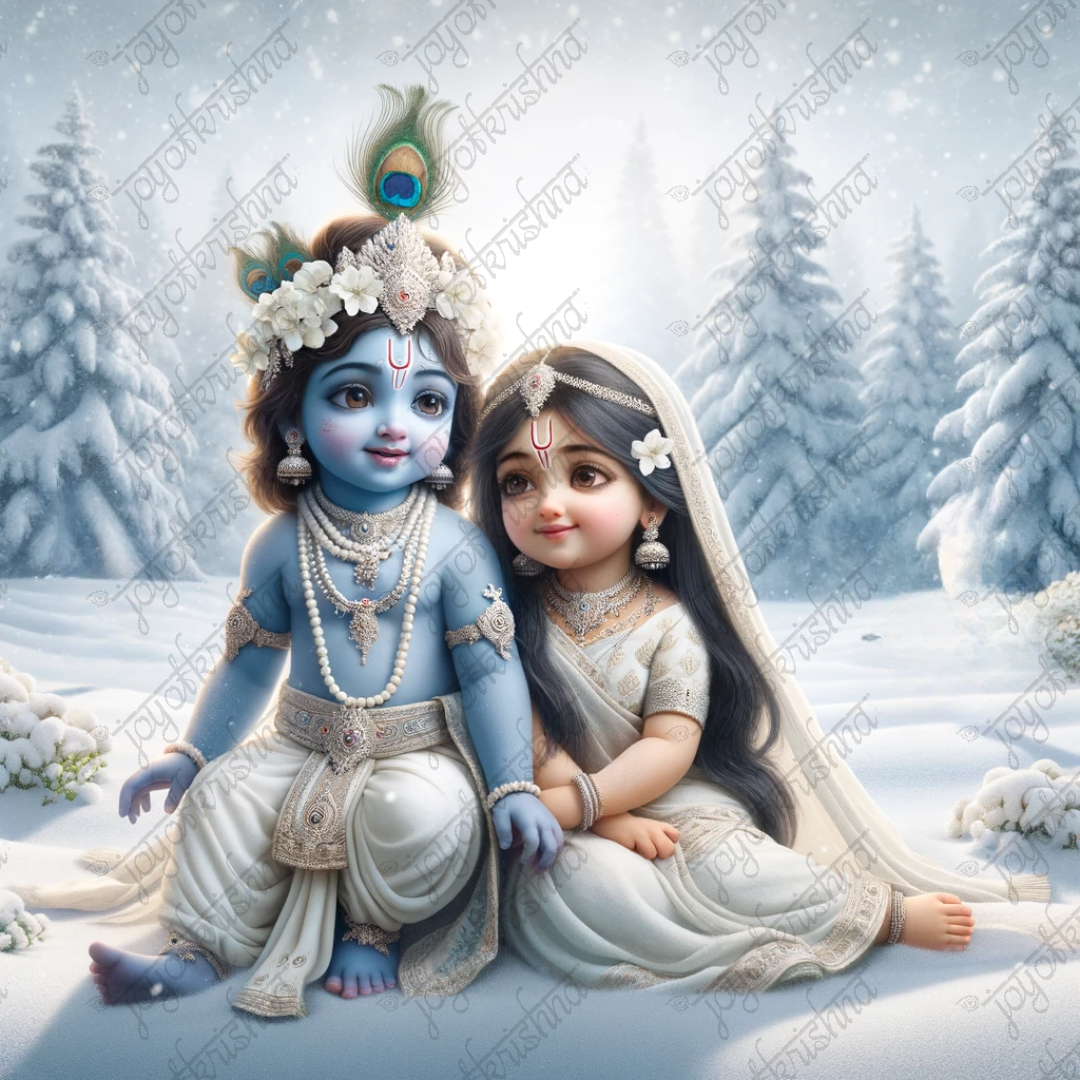
In the realm of Hindu mythology, one deity stands out for his enigmatic and multifaceted nature – Lord Krishna, the eighth avatar of the supreme god Vishnu. Born in the city of Mathura, Krishna’s arrival on earth was marked by a dramatic sequence of events, including the prophesied killing of his uncle, King Kamsa, who had been terrorizing the city. As a child, Krishna was known for his mischievous pranks, stealing butter and milk from the village women, and his extraordinary abilities, such as lifting the Govardhan Hill on his little finger to protect his people from a torrential downpour. However, beneath his carefree exterior, Krishna possessed profound wisdom and spiritual insight, which he would later impart to his friend and disciple, Prince Arjuna, on the eve of the epic battle of Kurukshetra. It was on this battlefield, with the armies of the Pandavas and Kauravas arrayed against each other, that Krishna revealed his true nature as the Supreme Being, expounding the eternal principles of dharma, karma, and moksha through the revered text of the Bhagavad Gita. As the charioteer of Arjuna, Krishna guided him through the treacherous landscape of war, confronting the complexities of duty, honor, and morality, and illuminating the path to spiritual enlightenment. Throughout his life, Krishna’s relationships with others were characterized by an extraordinary depth of emotion, whether it was his ardent love for his consort, Rukmini, his fraternal bond with his brother, Balarama, or his maternal affection for his devotees, who saw in him the very embodiment of divine love. As the ruler of Dwarka, Krishna established a golden age of prosperity and harmony, attracting sages, seers, and kings from across the land, all of whom were drawn to his boundless wisdom, compassion, and majesty. And yet, Krishna’s story is also one of tragedy and loss, as he faced the prophecy of his own demise, and the eventual downfall of his kingdom, which he accepted with equanimity, knowing that his spirit would endure long after his physical form had vanished. Through his many incarnations, and the timeless wisdom of the Bhagavad Gita, Krishna continues to captivate the hearts and minds of seekers around the world, offering a profound vision of the human condition, and the infinite possibilities of the divine. As a symbol of hope, love, and transformation, Krishna’s legacy extends far beyond the boundaries of Hinduism, speaking to universal aspirations and ideals that transcend creed, culture, and time. In an age of uncertainty and turmoil, Krishna’s message of selfless devotion, and his boundless love for humanity, remains an enduring beacon of light, illuminating the path to inner peace, and the realization of our true nature as sparks of the divine. Whether through his enchanting flute, his celestial song, or the gentle rustle of his robes, Krishna’s presence continues to be felt, a reminder of the magic, mystery, and wonder that lies at the heart of existence.